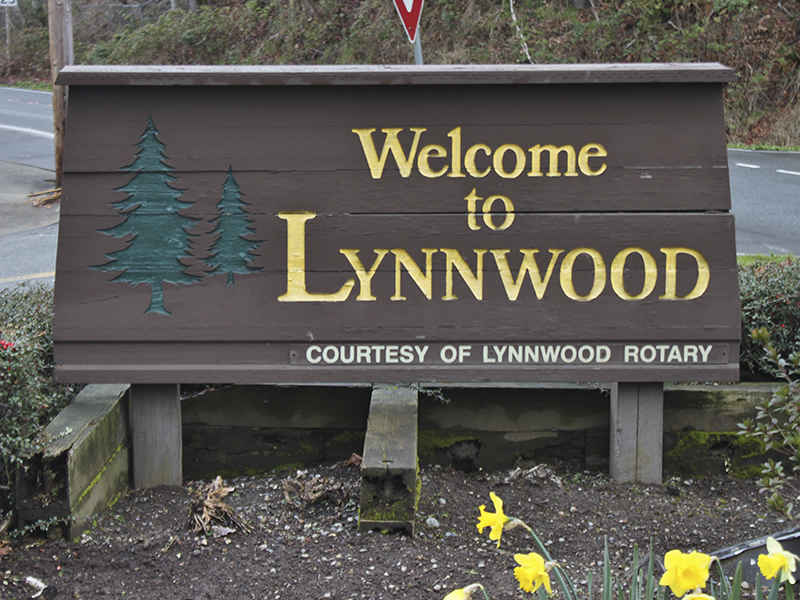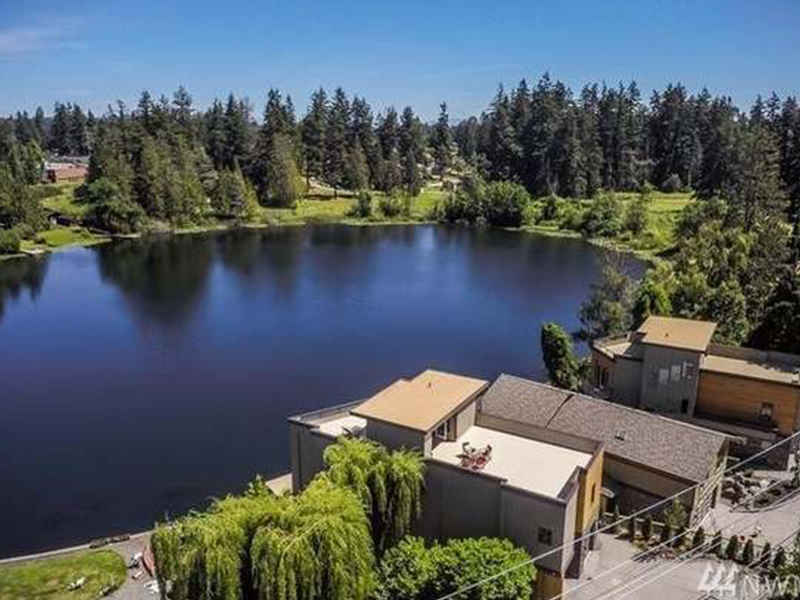Prior to contact with American settlers, the Snohomish tribe of Native Americans used the area of modern-day Lynnwood for summertime activities, including hunting, fishing, berry gathering, and root cultivation. The Snohomish were relocated to the Tulalip reservation, near modern-day Marysville, after the signing of the Treaty of Point Elliott in 1855, opening the area for American settlement.
Brown's Bay, part of Puget Sound, and modern-day Meadowdale were surveyed by American loggers in 1859. Logging on Brown's Bay began in 1860, and the first American settlers arrived in the 1880s. Scottish-born stonemason Duncan Hunter became the area's first non-Indian resident in 1889, filing an 80-acre (32 ha) land claim on modern-day 36th Avenue Southwest after moving west from Wisconsin. The claim was inherited by Hunter's son Basil, who lived on the property until his death in 1982; it was later turned into the city's Pioneer Park in the late 1980s. Hunter was joined to the east by a claim from William Morrice, a fellow stonemason from Aberdeen, Scotland. Settlers from Pennsylvania homesteaded along Cedar Valley, to the south of Hunter and Morrice, and near Scriber Lake (named for Peter Schreiber) in 1888, leading to the establishment of the area's first schoolhouse in 1895.


During the early 20th century, the Lynnwood area was gradually logged by private companies and mill operators, leaving behind plots with tree stumps. The arrival of the Seattle–Everett Interurban Railway in 1910 brought reliable transportation to the area, as well as real estate speculators. The Puget Mill Company, then the largest landowner in southern Snohomish County, established the planned community of "Alderwood Manor" in 1917 and marketed the area to urban dwellers wishing to build farms in the countryside. Alderwood Manor, located near an Interurban station, gained streets named for tree species and was divided into 5-to-10-acre (2.0 to 4.0 ha) plots that sold for $200 per acre. A 30-acre (12 ha) "demonstration farm" was built to educate new residents on raising crops and chickens, as well as market the Alderwood Manor plots to "Little Landers", a nickname for the new residents. Alderwood Manor grew to over 1,463 people and 200,000 hens by 1922, and had electricity and telephone services to most of its residents.
The Puget Mill Company leased out its demonstration farm in 1933 and ceased operations at Alderwood Manor later in the decade, amid declining sales during the Great Depression. At the same time, the opening of the Pacific Highway (modern-day Highway 99) in 1927 and the decline of Interurban service in the 1930s shifted the center of economic growth west near Scriber Lake. Seattle realtor Karl O'Brien filed a plat along Highway 99 at 196th Street Southwest in 1937, naming the development "Lynnwood" after his wife Lynn. Nearby businesses adopted the name during the 1940s, leading to the formal use of "Lynnwood" by the chamber of commerce in 1946, instead of the suggested "West Alderwood".
We offer solutions for any moving needs. Our team is highly skilled in local moving, office moving, furniture hoisting, piano/pool table moving, packing, and so much more! Our facility is well equipped for for short and long term storage.